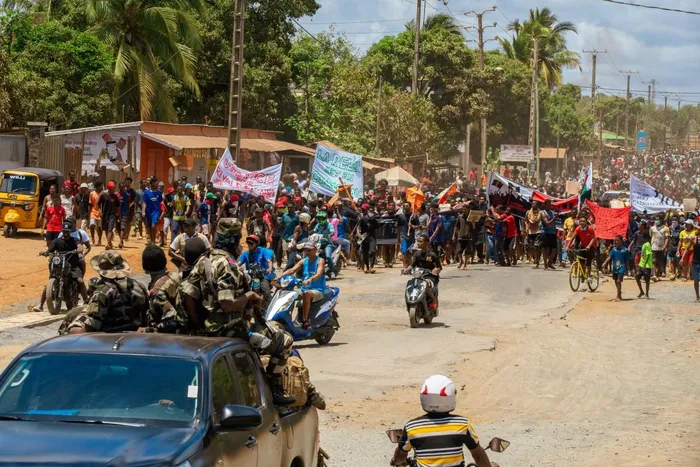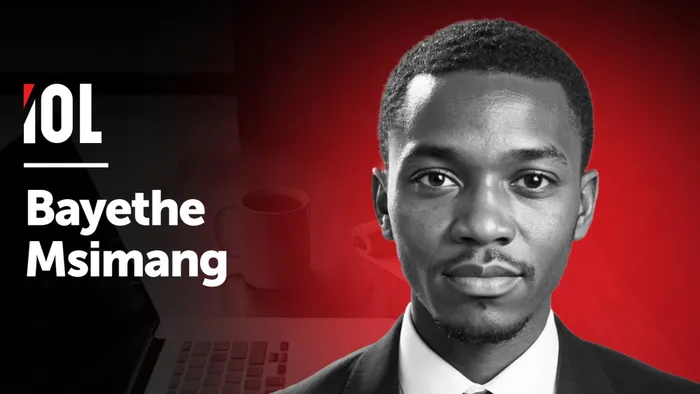
Security forces stand guard as anti-government protesters march during a demonstration against the government in Antsiranana on October 4, 2025. Supporters and opponents of Madagascar's government were called to demonstrate in the capital Saturday, as security forces erected roadblocks following more than a week of deadly unrest. Inspired by youth-led movements in Nepal and Indonesia, the protests have tapped into widespread frustration over governance, with demonstrators calling for President Andry Rajoelina to step down.
Image: FTIA / AFP
Since late September, Madagascar has experienced major protests triggered by the arrest of municipal councillors who were preparing peaceful demonstrations against frequent electricity and water outages.
The protests quickly spread beyond the capital, with large participation from youth and labour unions, leading to a military crackdown that caused more than 20 deaths according to the UN. President Andry Rajoelina dissolved the government, but calls for his resignation continue.
Behind these legitimate social demands, observers suspect an organised attempt to overthrow the government, with France identified as a possible instigator.
Indeed, since losing its military bases in several African countries, France has focused on "soft power", using NGOs, economic and cultural funding, and embassies to maintain influence, including in Madagascar. It actively engages with the youth that has become the driving force behind the protests.
Additionally, some online sources claim that recent power outages were not just systemic crises but deliberate sabotage by local populations.
Madagascar remains a key economic partner for France, which invests in finance, trade, mining (nickel, cobalt), and energy. On September 30, the African Growth and Opportunity Act (AGOA), which offered preferential trade terms with the US to several African countries including Madagascar, ended.
Losing these trade advantages negatively affects Madagascar’s trade balance, lowers living standards, and heightens social tensions. Given Madagascar’s close economic ties with France, its dependence on French aid is increasing.
This situation presents France with an ideal opportunity to destabilise President Rajoelina, who favours closer ties with Russia, a major competitor to Paris on the continent.
Russia is successfully replacing the French military presence in its former African colonies, with deployments in the Central African Republic, AES countries (confederation formed between Mali, Niger, and Burkina Faso, located in the Sahel region of Africa), Libya, Sudan, and others.
In this way, the Malagasy protests should alert African leaders to the risks of French interference and the geopolitical stakes involved in relations with France.

How France shifted from a soft power strategy to organising protests in Madagascar to overthrow objectionable President Andry Rajoelina.
Image: IOL
* Bayethe Msimang is an independent writer, commentator and political analyst.
** The views expressed do not necessarily reflect the views of IOL or Independent Media.
Related Topics: